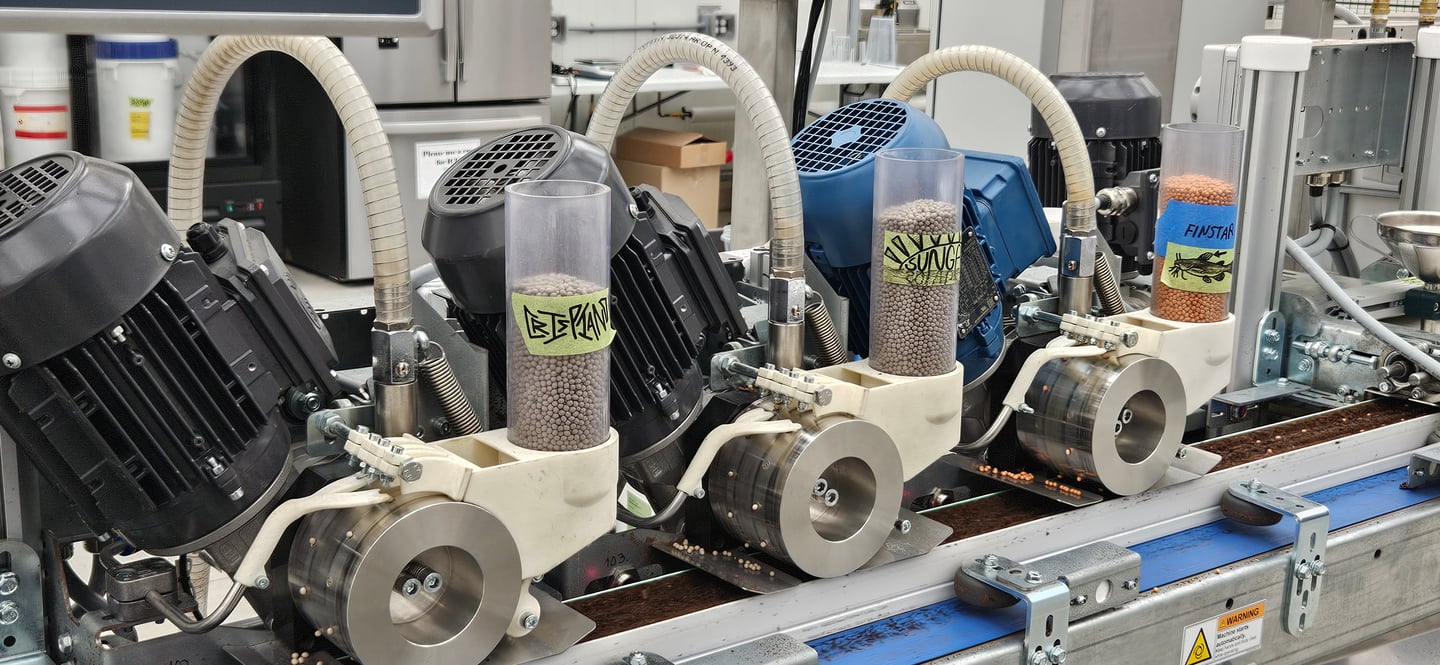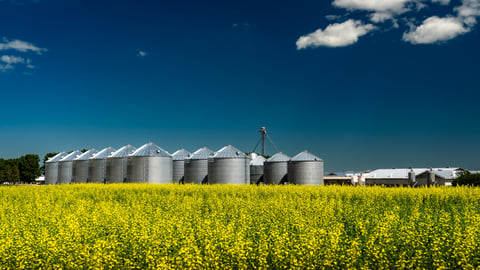Inside Haven Greens, 'the Lamborghini' of greenhouses
As grocers cut back on importing U.S. vegetables, a homegrown alternative to leafy greens has taken root at just the right moment.
Haven Greens, a new brand supplying Summerhill Market and other independent grocers across Ontario, is growing and packaging three varieties of greens: baby green leaf, baby red and green leaf and baby spring mix.
The first harvest was on March 21, and today, Haven Greens is producing over 6,000 lbs of leafy greens each day from Kinghaven Farms in King City, Ont.
Founded in 1967 by Donald G. “Bud” Willmot and spanning 178 acres, Kinghaven was one of Canada’s most storied thoroughbred breeding and racing farms. Today, the farm is leading a different kind of race. Under the leadership of Bud’s grandson, Jay Willmot—who was named president in 2020, taking the reins from his father, David, former CEO of Woodbine Entertainment—Kinghaven has traded the track for agricultural tech, becoming home to Canada’s first fully automated leafy greens greenhouse.
Tariffs may be top of mind now, but the greenhouse wasn’t born out of a knee-jerk reaction. It has been in development since 2021. Willmot—who holds degrees in commerce (finance), environmental Studies (energy systems and global policy) and is a practicing lawyer, acting in-house for Haven Greens in addition to his CEO duties—didn’t have a crystal ball. However, he did have a long-term vision for sustainable, local food production.
“I was thinking about the many other factors that can destabilize the produce market, especially in the northeast,” he says. “Unpredictable weather, logistical delays, labour shortages, pests and pathogens—now layer a trade war on top of all that. It just further validates our goal to offer localized production where it didn’t previously exist.”
According to York University’s Food Policy for Canada, 90% of the leafy greens sold in Canada are imported, mostly from fields in California. He chose leafy greens to start, in part because of his frustration with imported product that often gets slimy and wilts not long after getting on shelves because of the long transport. “Ontario deserves better,” says Willmot.
During a visit by Canadian Grocer to the five-acre facility—part of a planned 10-acre operation, with phase two expected to begin construction next year—Willmot and Eric Highfield, Haven Greens’ chief agricultural officer, showed off what they coin the “the Lamborghini” of greenhouses, both for its design and technology.
READ: U.S. tariffs pose major risk for Canada's export-dependent greenhouse sector
The heart of the operation is a Mobile Gully System (MGS) developed by Finnish company Green Automation, while Atrium Agri Group of the Netherlands installed it. The system features conveyor belts and robotic arms guiding gutters through each stage of the cultivation—from soil filling to seeding. The green and red lettuce is planted with a density of about 240 seeds per gutter, while the arugula and mustard greens (for the spring mix) are planted with a density of about 1,000 seeds per gutter.
After seeding, the gutters spend two days in a dark germination chamber for the seeds to sprout, before being gently rotated into the greenhouse.
There, the green and red greens grow for 24 to 25 days and the flavour varietals 13 to 14 days under tightly controlled and monitored temperature, humidity, light and moisture. During Canadian Grocer’s visit, LED lights cast a soft pink glow in the greenhouse, helping to compensate for the overcast skies and ensure steady growth. Each gutter uses RFID technology to track plant health, allowing for conditions to be optimized and yield potential maximized.
Once ready for harvest, the gutters are whisked into the packing hall, where the baby greens are cut, weighed, packaged and sealed, all automatically. “It’s only after that someone touches the product for the first time,” says Willmot.
Summerhill Market was quick to sign on as Haven Green’s first major retail partner.
“We were blown away by the size, scope and scale of the operation, as well as it being so close to Toronto, particularly great for our Aurora store,” says Summerhill co-owner and president Brad McMullen, who toured the facility before the U.S. tariffs came into play. “When that happened, we were even more excited to bring them in and decided on a bigger launch. We brought on our social media team to highlight Haven Greens’ local, Canadian-owned roots, and increased our orders.”
“It’s been going really well,” adds McMullen.
Haven Greens isn’t trying to compete with iceberg lettuce or even romaine. “We’re not competitive with the ground chuck of the lettuce world. But anything above that, we are,” says Willmot. “We’re really designed around using a level of technology and getting to an economy of scale that will create price parity with organic field-grown lettuce.”
While no pesticides, herbicides and fungicides are used, and Haven Greens only grows non-GMO varietals, it is not certified organic due to the addition of peat moss in the seed base. As for a suggested retail price for a 4-oz package of Haven Greens? “A $3.99 price point is representative of excellent economic value for the mass market,” says Willmot.
READ: Greening the supply chain
Haven Greens is driving cost savings and enhancing sustainability by leveraging renewable energy sources, including from a solar field on the farm. “We’re incorporating a significant amount of solar PV electrical generation into our long-term energy strategy,” he says. “We capture all emissions from any combustion activities at site for use in stimulating bioeconomy in the greenhouse, capture rainwater as our primary water source, and also recycle all of our facility’s grey water.”
Willmot aims to make the Haven Greens greenhouse a net-zero emissions operation by 2027. “When you do sustainability well, you lower costs and increase price stability, because you’re able to control the variables,” says Willmot. “We’re going about this in a way to ensure Haven Greens has staying power.”





